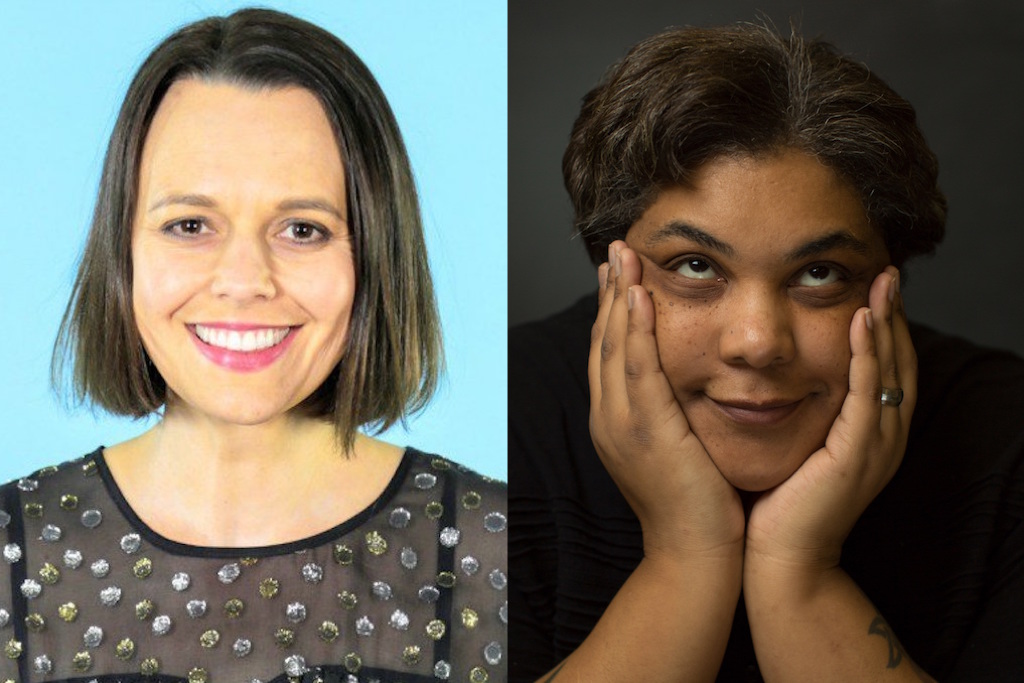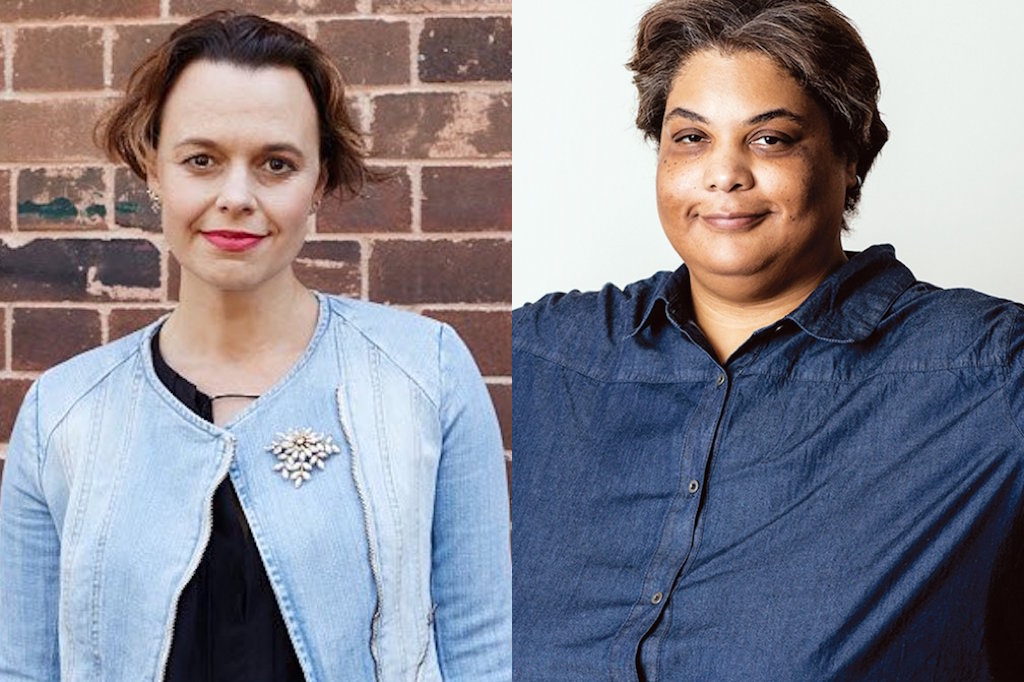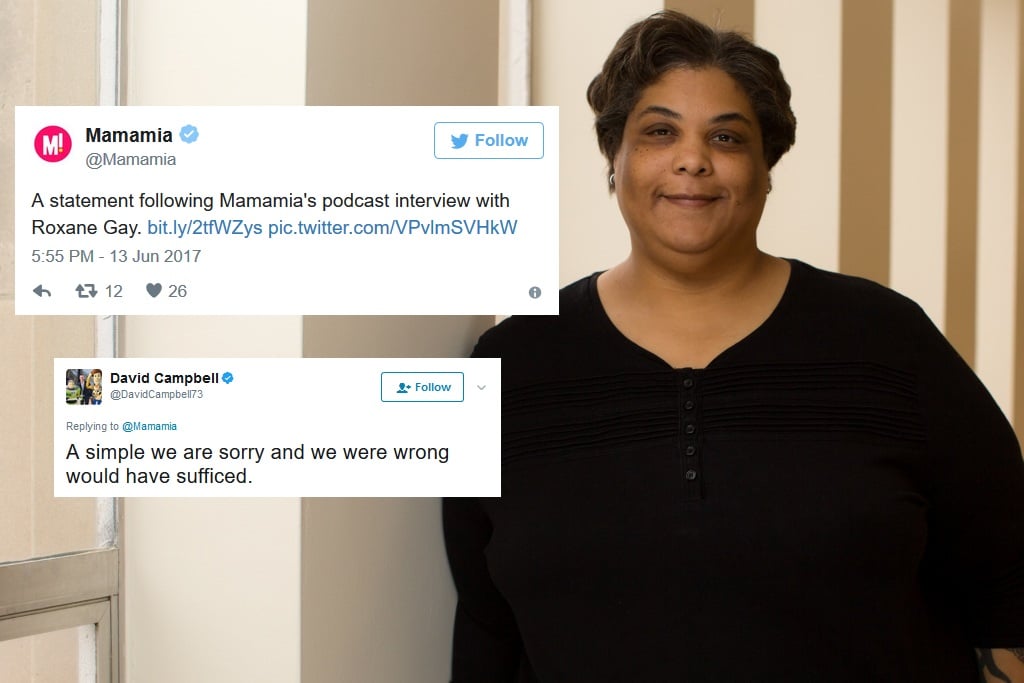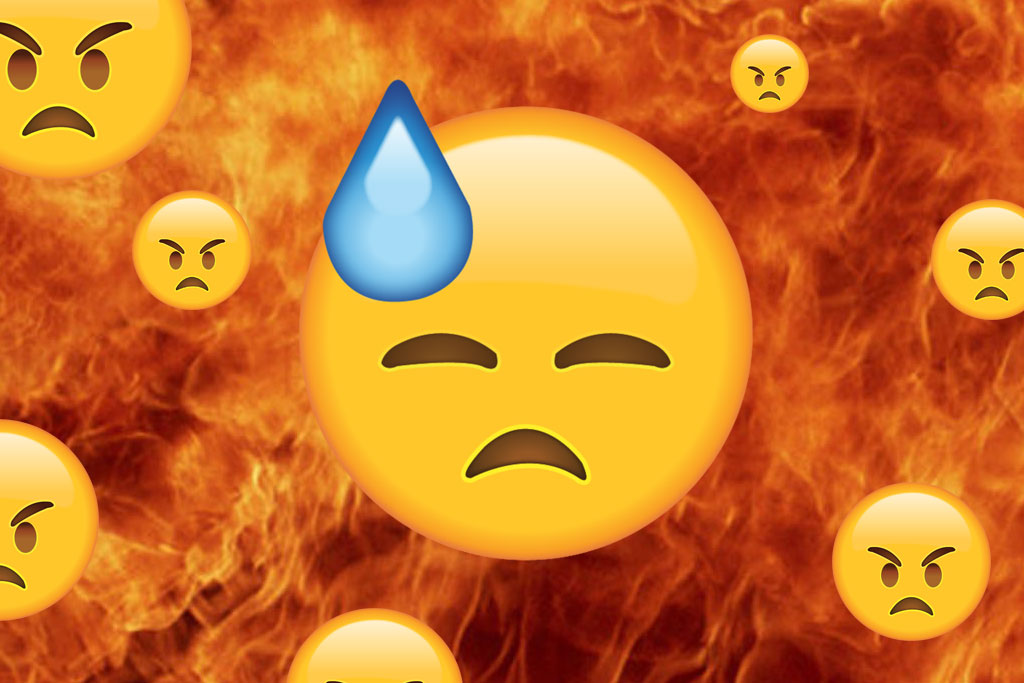On Mia Freedman, Roxane Gay, And The Use Of Being Mad On The Internet
Is anything going to be learned from this?
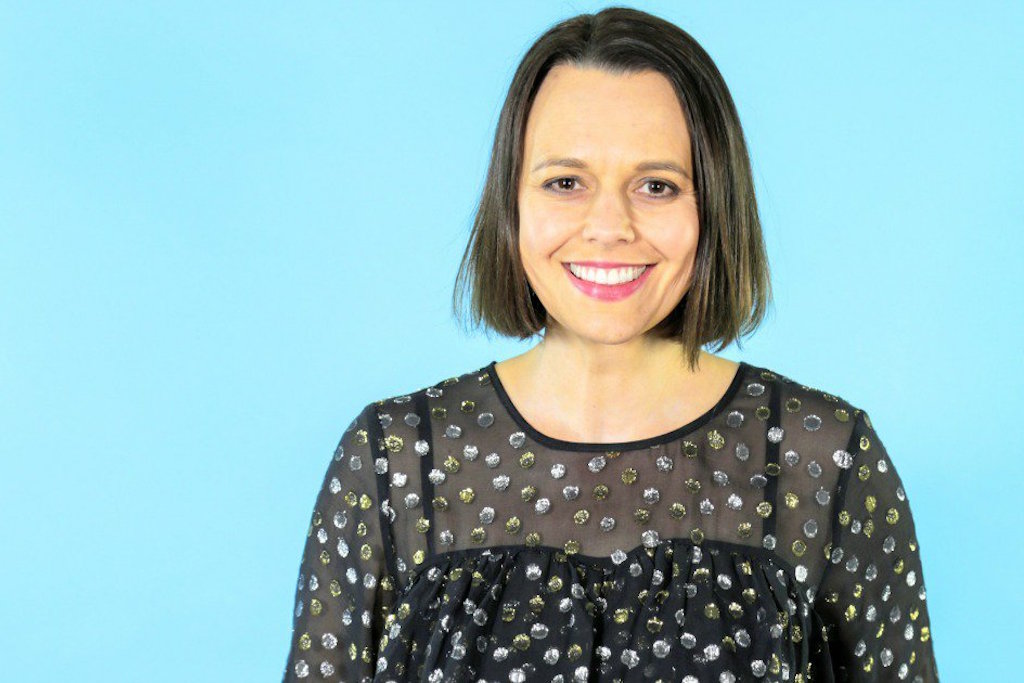
I am angry at Mia Freedman. We all are.
Yesterday, Freedman released a terribly tone-deaf podcast on Roxane Gay’s Hunger, a book about Gay’s experience moving through the world as a fat woman. It was cringeworthy and misguided and hurtful, and the resulting response — from Gay, many women on Twitter, and eventually from Freedman herself — is rightfully dramatic. That discomfit, experienced as you watch a woman (especially one like Freedman, who claims to be a “feminist”) take down another woman, reaches bone deep.
The history of women — even feminists, especially feminists — betraying each other is long and arduous. Mostly, it’s about white women throwing their sisters under the bus for a shred of male respect, attention, or safety. At last year’s US election, 53 percent of white women voted in an openly racist, self-confessed abuser. Closer to home, consider how many white Australian women do not raise their voices, or direct a vote, to help the women locked away in Australian-funded detention on Manus Island and Nauru — where they are raped, tortured and denied basic rights — all for the preservation of our own superiority or blissful ignorance.
Woman-on-woman crime is, of course, not exclusively white, but the privilege of women (like me) who are wealthy, white, straight, able and well-educated often makes us feel invincible. Or as though the only problems we have to fight against are our own.
And so we return to Mia Freedman, a wealthy white woman who has made millions by unashamedly catering to this narrow and exclusive market of women. It’s easy to be seduced by Mamamia’s slogan, which purports to cater to “what women are talking about”, without acknowledging that it is referring to a certain kind of woman. But there’s a reason people weren’t surprised by how things went with her and Roxane Gay.
Bad Feminist
In the aftermath of this scandal, countless women have expressed their deep displeasure at the ordeal Gay has been publicly put through. Other women have shared very personal and upsetting responses to the incident. Author Maxine Beneba Clarke expressed regret at not warning Gay to avoid Mamamia as a black woman, and Rosie Waterland tweeted a heartbreaking response as a former Mamamia alumna who tried to educate the office on fatphobia.
This isn't your responsibility.
— roxane gay (@rgay) June 13, 2017
Then there are the legions of women, and I uncomfortably include myself in their ranks, who piled on Mia Freedman (however rightfully she needed to be called out) and her unquestionable but dubiously constructed empire.
It’s no secret that Freedman is a public figure who courts controversy (at times, seemingly on purpose). As a woman who has built an empire on “feminism”, but very often betrays that amorphous cause, Freedman has been accused of myriad sins against the sisterhood. She’s been called out for not paying her freelance writers, most of whom are women (hello, wage gap). She’s been exposed contributing to the systemic victim-blaming of female assault victims — an act made admissible, at least in her eyes, by protestations of playing protector “as a mother”. She is also deeply wh*rephobic — what is often a calling card of the prototypical White Feminist.
In short, she can be a very difficult ‘feminist’ to come to terms with. She is someone continually given a platform despite the abject harm she continues to cause other women, and the feminist cause in general.
among all the garbage that surrounds it, i gotta say that having all of twitter be mad at fat-shaming language is a good and unusual feeling
— Brodie Lancaster (@brodielancaster) June 13, 2017
This year we received the apparent wisdom of Jessa Crispin’s anti-feminist feminist manifesto (yes, you read that right), Why I Am Not A Feminist. I had a great deal of trouble with this short book. Illogical, circular in its arguments and exceedingly bleak, this confused manifesto seemed — to me at least — to exist purely to chastise young feminists, experimenting with new ways of interacting with the movement, for “doing it wrong” (aka not like the Second Wave). It has no solutions, no call to arms, no optimism. Just patronising condemnations from a woman who prefers feminism to remain what she calls “radical”, but what I prefer to label “obscure” and “exclusive”.
Perhaps Freedman was the type of woman Crispin was condemning: a “choice feminist”, a “me, me, me feminist”, with no forethought or broad perspective, and no desire to use her considerable privilege and platform to reach out a hand and pull up those vulnerable sisters in need. Or perhaps Crispin and Freedman are in the same camp: women who generate superiority by taking down other women.
I don’t like this kind of woman: the kind who is only concerned with feminism as it relates to her, the kind who laments the condition of women in the Middle East, or of sex workers, without asking those women how they feel about their circumstances. But I also don’t like the idea that, when a woman makes a mistake, we suddenly jump on her and beat her into submission.
When Is A Teachable Moment Worth Teaching?
Solidarity is not selective. Allowing other women their honest mistakes and teachable moments is vital to the whole movement advancing and opening up to make space for those diverse women who are often shut out by straight white supremacy. Sometimes calling out is just correcting and moving on.
Yesterday I was unusually vocal on Twitter (a platform I rarely use and don’t totally understand) about the Gay/Freedman incident. Not only did I post about it myself, I joined other threads to express my outrage. As I piled on and on, I felt the gleeful bubbles of drama build inside me. I don’t particularly like Freedman, or Mamamia, so part of me was probably thrilled to have a justifiable reason to lay into her (and the organisation itself).
In the podcast she flat-out admits she's breaking confidentiality as she records a 10-min introduction, solo, to humiliate Gay. Worst person
— Matilda Dixon-Smith (@mdixonsmith) June 13, 2017
But how much of my vitriol was a legitimate response to Freedman’s bad behaviour, and how much was an excuse to be mean about a woman I did not like? That question can be an uncomfortable one. I was made more uncomfortable still when I joined a thread on a women writer’s Facebook group dedicated to the incident, which quickly devolved into some thorough Freedman-bashing. Over the past 24 hours, Junkee has deleted a number of abusive Facebook comments under their stories on the incident. Freedman was repeatedly called names like “c*nt”.
This is not to say that the complaints against Freedman are not legitimate, or that she does not deserve to be deposed from her self-appointed role as “spokesperson for all Australian women”. But I worry about how easy it is for us to turn a call-out into a pile-on. As we check these women, we should also check ourselves, and ensure that we are calling out constructively and inclusively.
Of course, in the case of Freedman, she has more than proved she is not worthy of clemency, nor is she apparently craving that teachable moment to learn her mistakes. That much is clear from the non-apology she circulated under the cowardly byline “Mamamia Staff”, as if they were all responsible for their overlord’s miscalculation. Freedman does not think she made a mistake, so she doesn’t get her benefit of the doubt. For what it’s worth, Freedman did eventually personally apologise to Gay, so perhaps there is hope for her growth after all.
I noticed yesterday that the best and most salient points were being made by smart women who used Freedman’s error as a broader teachable moment. Women like Maxine Beneba Clarke, who used the incident as an opportunity to discuss the poor treatment she received from the white Australian media during her tour of The Hate Race; or Nayuka Gorrie, who deftly pointed out that we can all do better in our treatment of fat women; or Steph Harmon, who wrote “there is no excuse to be tonedeaf in the internet age”.
For everyone appalled at Roxane's treatment by electronic shit stain mamamia, also consider how YOU treat fat people. We can all be better.
— Nayuka Gorrie (@NayukaGorrie) June 13, 2017
That doesn’t just apply to Freedman; it applies to all of us. I don’t want to imply that those women affected by Freedman’s comments about Gay shouldn’t express their anger. If you are angry, be angry. But, let’s be real here, calling Freedman a “c*nt” on the internet is about as useful as Freedman electing to call Gay “super-morbidly obese” just because she wanted to.
I don’t think it does us any good to jump in the gutter with a woman like Freedman, just to prove that she is wrong. True, when we make mistakes, we absolutely need to do the work to fix them ourselves, and not ask our beleaguered oppressed sisters to do it for us. And when we are wrong, we need to front up and apologise. But I can recognise the value in checking that my outrage doesn’t run away from me, especially I am judging from a position of extreme privilege .
–
Matilda Dixon-Smith is Junkee’s Staff Writer. She tweets at @mdixonsmith.
